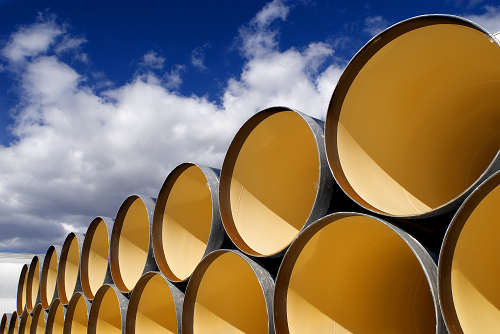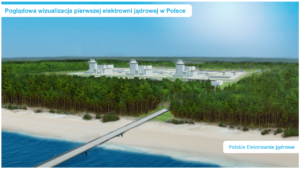The victory of Poles in the OPAL case does not threaten the security of gas supplies to Europe, but the unpredictable policy of Gazprom – writes Wojciech Jakóbik, editor-in-chief of BiznesAlert.pl.
The OPAL verdict forces Gazprom to limit supplies via OPAL
On September 10, the judgment of the Court of Justice of the European Union was announced, regarding the exclusion from antitrust regulations granted by the European Commission to Russian Gazprom questioned by the Republic of Poland. It allowed the Russians to bid for additional capacity for the OPAL pipeline, a branch of Nord Stream in Germany. Bringing back the restriction forced the Russians to limit supplies on the German route and thus improved Ukraine’s position before the tripartite negotiations scheduled for 19 September.
OPAL judgment and security of gas supply to Europe
However, the interpretation of this fact is changing in the Russian media. On September 11, Kommersant informed that the decision would be a precedent that could hinder Gazprom’s application for a similar exemption for EUGAL, the Nord Stream 2 German branch, because the European Commission relied on the principle of energy solidarity from the Lisbon Treaty. However, on September 17, a group of experts interviewed by the TASS agency said that the verdict may work in favor of Gazprom, because it limits the use of the German route and increases gas prices, which will be an argument for adopting a new EC decision to exclude OPAL from the regulation in favor of the Russians, to which The CJEU will have no objections.
One can also find the opinion of Katja Yafimava of the Oxford Institute For Energy Studies, who states that the verdict of the CJEU reduces the chances of an agreement on the future of gas supplies through Ukraine in the trilateral EC-Ukraine-Russia process, the next stage of which is scheduled for 19 September. According to Yafimava, Russian Gazprom will be able to accuse the Court of creating a threat to the security of gas supply to Europe. In this way, it fits in with the rhetoric of experts quoted by TASS, suggesting a high prices on the gas market caused by the judgment. – Before the verdict, Gazprom was certain that it would have spare capacity (for OPAL – ed.), and now it is not available – says the Bloomberg analyst.
In fact, the OPAL verdict will make it more difficult for the Russians to use the risk of interruption of supply through Ukraine as a scare in trilateral negotiations. It is Russian foreign policy that tells Gazprom to act against the interests of its customers and limit or interrupt agreed deliveries if necessary, is a real threat to the security of gas supplies to Europe. However, the record filling of warehouses over the Dnieper (over 19 billion cubic meters as of September 15) is a better guarantee that Russia will not effectively trigger a new gas crisis this heating season. This does not mean that it will not try to do so. On the other hand, the thesis of experts quoted by TASS that the crisis will be triggered by the US is, in my opinion, impossible to defend.
It is also difficult to defend the thesis that the OPAL verdict forces the Russians to increase supplies via Ukraine. They increased even before the announcement of the German regulator Bundesnetzagentur that Gazprom must limit supplies by OPAL to the level adjudicated in the Court’s judgment. On 15 July, the Russians sent 182 087 thousand cubic meters through Ukraine daily. On 10 September – on the day the OPAL judgment was announced – they sent 244525 thousand by gas pipelines, and on 15 September already 226 822 thousand cubic meters daily. On the same days, 44 165, 43 414 and 33 012 kW per hour flowed through OPAL at Greifswald’s entry point, according to data from 6 AM on each of these days. Units are different, but the trend is visible. After the Tribunal’s verdict deliveries via OPAL, but also via Ukraine dropped. This may be the result of decline in gas exports to Europe in 2019 predicted by Gazprom, or the company’s policy, which is difficult to predict for political reasons.
Gazprom’s surprises are a potential threat
There is no question, however, of any threat to security of supply. The drop in supplies via Ukraine seen on September 15 gives space to increase exports to Europe along this route if necessary. However, the Russians may further reduce supplies through Ukrainian territory in order to exert pressure in the course of trilateral negotiations. However, in this scenario, the availability of the Ukrainian route remains a factor that increases the security of supply to Europe, and the verdict becomes a tool ensuring its utilization, and Gazprom’s unpredictable policy is becoming a possible threat to security. The theses repeated by experts from TASS and the Oxford Institute for Energy Research will not change this.









